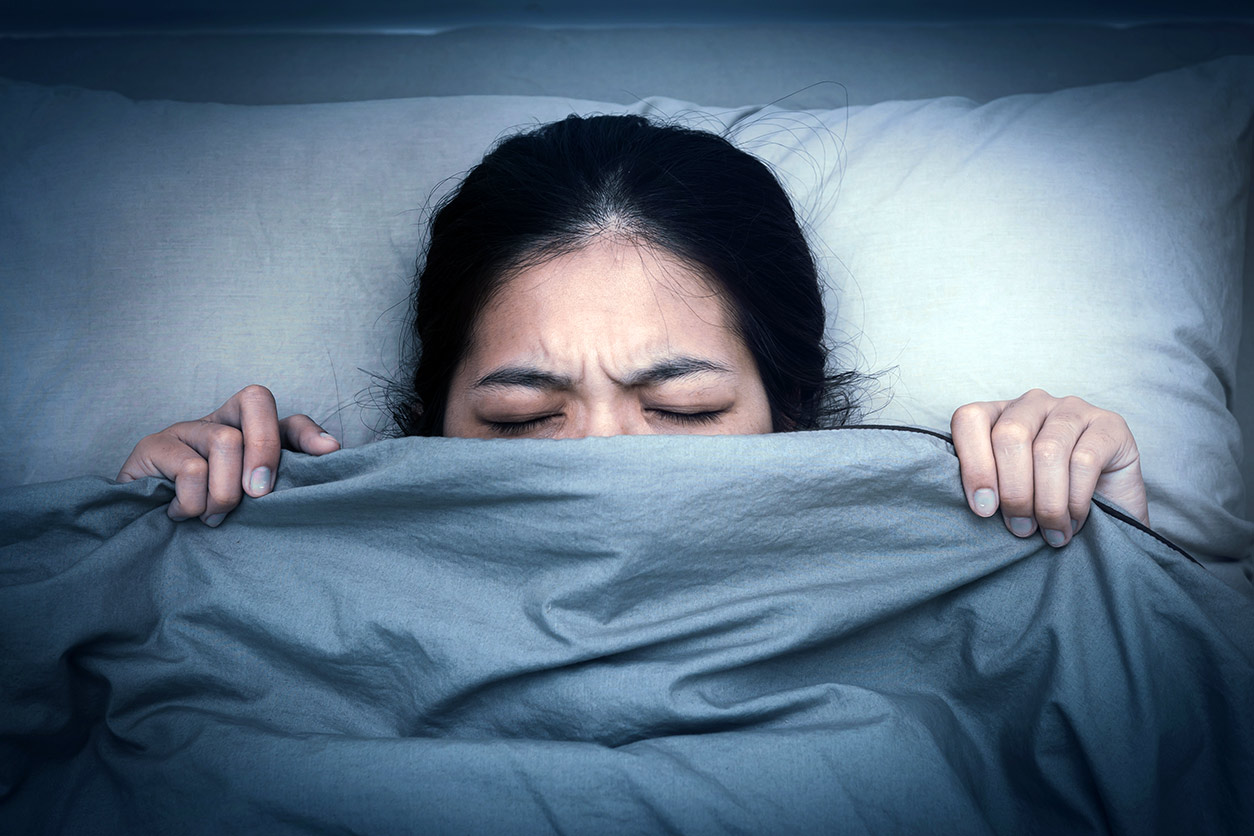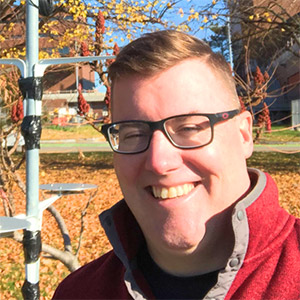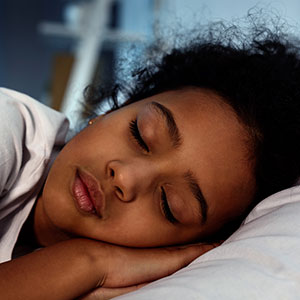 Jackson studies how physical and social environments affect health and contribute to health disparities. (Photo courtesy of Steve McCaw)
Jackson studies how physical and social environments affect health and contribute to health disparities. (Photo courtesy of Steve McCaw)Getting a good night’s sleep can be difficult under normal circumstances. But it can be even more challenging during a global pandemic, said Chandra Jackson, Ph.D., who studies the environment and sleep at NIEHS.
Jackson discussed the connection between sleep and health with Marishka Brown, Ph.D., program director for sleep disorders medicine research at the National Heart, Lung, and Blood Institute, as part of the #CopingWithCOVID19 livestream series (see sidebar). Approximately 5,600 people from as far away as Bangladesh, Kenya, and Brazil tuned in live to the Aug. 14 conversation on the National Institutes of Health (NIH) Facebook and Twitter feeds.
“We are all undoubtedly affected by the pandemic and in different ways,” said Jackson, who holds a joint appointment at the National Institute of Minority Health Disparities. “Many people are either sleeping less or more than they should. Some are sleeping at different times or getting a lower quality of sleep. Either way, we know that optimizing your sleep helps with energy levels, emotional wellness and mental health, the immune system, and brain function.”
The pandemic’s nightly toll
Even before the emergence of COVID-19, an estimated 1 in 3 adults did not regularly get the recommended amount of at least seven hours of uninterrupted, quality sleep needed to protect their health. Jackson said it is likely that the stress which keeps many people up at night has increased in recent months. They may face feelings of isolation or depression, as well as financial strain and job or housing insecurity.
“Our routines have also been disrupted, and it can be difficult to adjust to this new way of living,” she said. For example, keeping track of time can be difficult without the typical cues like dropping kids off at school in the morning or leaving the office in the afternoon.
Simply staying home rather than going outside can greatly lower one’s exposure to natural light, throwing off the circadian rhythms that tell the body when to sleep and when to remain alert.
 Jackson said that even before the pandemic, millions of Americans suffered from sleep disorders.
Jackson said that even before the pandemic, millions of Americans suffered from sleep disorders.Tips for good sleep
Jackson said people should rest assured that everyone has trouble sleeping from time to time. “No matter how good a sleeper you think you are, there is usually room for improvement,” she said. Below are some of the tips Jackson gave for catching the most ZZZs:
- Pay attention to light. Get bright light early in the morning and avoid bright or blue light at night, which can suppress the production of the sleep hormone melatonin.
- Practice a relaxing bedtime ritual. Help yourself wind down from the day by meditating, taking a bath or shower, listening to gentle music, or reading a book.
- Create an inviting space. Keep your bedroom cool, invest in a good mattress and pillows, and try blackout curtains, earplugs, or soft white noise.
- Be aware of hidden sleep stealers. In the hours before bed, turn off electronics and avoid excessive or heavy food or liquid intake, caffeine, nicotine, and alcohol.
- Clear your mind. If you cannot sleep because your mind is racing, write down your thoughts or a to-do list for the next day before going to bed.
- Take short naps. Avoid long naps or naps later in the day, which could hinder your nighttime sleep.
- See your physician. Talk to your doctor if you are concerned about your sleep, have difficulty falling asleep or sleeping through the night, or have been told you snore loudly.
Citation: Sheehan CM, Frochen SE, Walsemann KM, Ailshire JA. 2019. Are U.S. adults reporting less sleep?: Findings from sleep duration trends in the National Health Interview Survey, 2004-2017. Sleep 42(2):zsy221.
(Marla Broadfoot, Ph.D., is a contract writer for the NIEHS Office of Communications and Public Liaison.)









